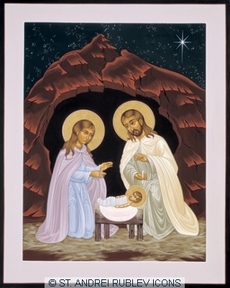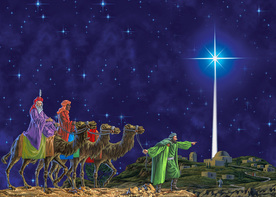 Recently I was reminiscing about the first home I lived in until I was about three years of age. I told a story was about how my older brother loved to play a joke on my parents when we were toddlers. He somehow got me out of my crib, walked me over to his, got me up over the bars of the crib and had me join him, waiting for our parents to come into the room. The first time he did it my parents were shocked when they entered the room to find me missing from my crib. But then they turned and saw us both standing in my brother's crib laughing at this fun trick we had played on them. I am not sure how my brother pulled this off, but apparently he was rather proud of himself, and my parents were amazed at his ingenuity. It is a great story and I have enjoyed sharing it over the years. However, the reality is that I do not remember this event at all. The memory was “given to me” by my parents who re-told the story many times during my life. I tell the story now as if I truly remember it, but frankly, I have no recollection of it at all. However, that does not mean the story has no importance or that I cannot tell it as if it is my memory. It is part of my "history" so there is no reason I cannot claim it as my own. It is part of the relationship I had with my brother at that time and the relationship we had with our parents. It says something about our personalities even in the beginning of our lives. I believe this is true of the stories of our faith as well. If we really listen, all the stories of Scripture are about us, even though we were not there at the time. For example, on the feast of the Holy Family we hear about Mary, Joseph, and the infant Jesus being visited by the Magi. At first glance we might not feel we can relate to this touching scene since none of us have perfect parents and we did not have rich astrologers show up at our homes bearing extravagantly expensive (and mysterious) gifts. But we can relate to the joy of birth, the gifts given by friends, and a growing family trying to define itself with the addition of a new baby. We might not be able to relate to having to flee because someone wants to murder the child, but we can relate to the worry of new parents trying to protect their new baby in a dangerous world.  The Scriptures are the Word of God. That is, it is His message of truth, wisdom, compassion, and love to us. What is important is that we look not so much at the details of biblical stories, as we look at the message the stories contain. At the Mass on Christmas Day, for example, the gospel reading was from the beginning of John's Gospel. Interestingly, this same reading is repeated less than a week later. Therefore we can surmise that the message of it must be important. "In the beginning was the Word, and the Word was with God, and the Word was God. He was in the beginning with God. All things came to be through Him, and without Him nothing came to be. What came to be through Him was life, and this life was the light of the human race; the light shines in the darkness, and the darkness has not overcome it." (John 1:1-5) The gospel writer is telling us about the beginning of creation, a time we really cannot fathom, let alone recollect. However, God revealed to John the reality of His own presence as the Trinity so that it would become part of our understanding of who He is. Just as my parents told stories which in turn I re-tell, God wants us to know of a time we cannot remember, but which is important to our understanding of who He is and who we are in relation to Him. In the beginning of time, God already existed as Father, Son, and Spirit. The Son who came into the world as both God and man, born of a human mother and the Spirit of God, is in fact God's message of love to us. He is both the message and the messenger. The little child is Love incarnate. That Child came so that we might always walk in the light of Love, and not be lost in the darkness of sin and the imperfections of our world. Jesus, Emmanuel, God with us, is here with us forever in order to walk with us, giving us courage when we are fearful, compassion when we sin, mercy when we grow cold to Him, comfort when we are ill or hurting, and peace when we are in turmoil. He is the everlasting God, come into our world as one of us, in order to help us to understand His message of love and peace. And to make sure we really got the message, He suffered and died for us and our sins, rising again on the third day so that we would understand that He wants us to be with Him forever in Heaven.  The Word of God, Jesus, also wants us to know who we are to Him. We hear the stories repeatedly so that we are clear about our relationship to God. We are nothing less than beautiful and beloved. We are His: it is to Him that we belong. Yes, we are sinners, but we are loved sinners, always welcomed back by the One to whom we belong. We must never lose sight of who we are and whose we are. Therefore the Church retells the stories over and over, so that we might discover more about God our Father, His Son (the Word became flesh), and the Holy Spirit, and about ourselves in relation to Him. We know there is evil and suffering in the world which is part of the brokenness of all things, the darkness that Jesus has come as light to overcome. Many of us struggle with a myriad of challenges and sufferings. So did the Word, Jesus. He had to run for His life before He even spoke a word of teaching or challenged a Pharisee. He was homeless and in exile before His childhood had started. He was poor and outcast in Egypt before settling in the humble town of Nazareth. Though He had a perfect mother, He suffered the loss of His father while He was still a young man, bearing the burden of being the provider for His widowed mother. He lived in an unjust society, oppressed by a regime which took advantage of His people. He lived in a world where life was not fair, just as we do. He knew the kinds of suffering we bear in our lives because He lived it in His own. Therefore, let us continue to look to the beginning. What are the stories in our personal history that inform us of our identity, or which formed us into the men and women we are today? Perhaps in the re-telling of the humorous or more serious memories we have, and the ones told to us by our parents which are really not so much our memories as they are given to us to help us know something of our rootedness, we can come to understand who we are and whose we are. Perhaps we can apply this to the memories given to us by God in the stories of our faith. These are as real as any other stories of our lives; and more than any other stories, they reveal the very heart of God as the one who created us and loved us from the very beginning of time. In the beginning was the Word, the Son of God, who loved us so much that He chose to enter into our world to help us know the depth of that love. In the beginning the message was the same as it is today: we are beautiful and beloved, and we are His. May we have joy of knowing who we are by remembering the stories that formed us into the men and women we are today! May we have the deep knowledge of our identity as being sons and daughters of God, loved from the beginning! May we come to know the love of the Word, the one who was in the beginning and who came into the world to bring us salvation and joy! And may we come to have gratitude for knowing who we are and whose we are eternally! Let us continue to share in the joy of the Christmas season, meeting in the Heart of the Lord, the Word who has come to shine light in darkness! Peace! ©Michele L. Catanese The icon, The Nativity of Our Lord Jesus Christ is the work of Rev. William Hart McNichols and can be found at http://www.fatherbill.org/all-categories/product/287-the-nativity-of-our-lord-jesus-christ The photo was taken by the Hubble telescope. Comments are closed.
|
Heart Speaks to Heart
|

 RSS Feed
RSS Feed

